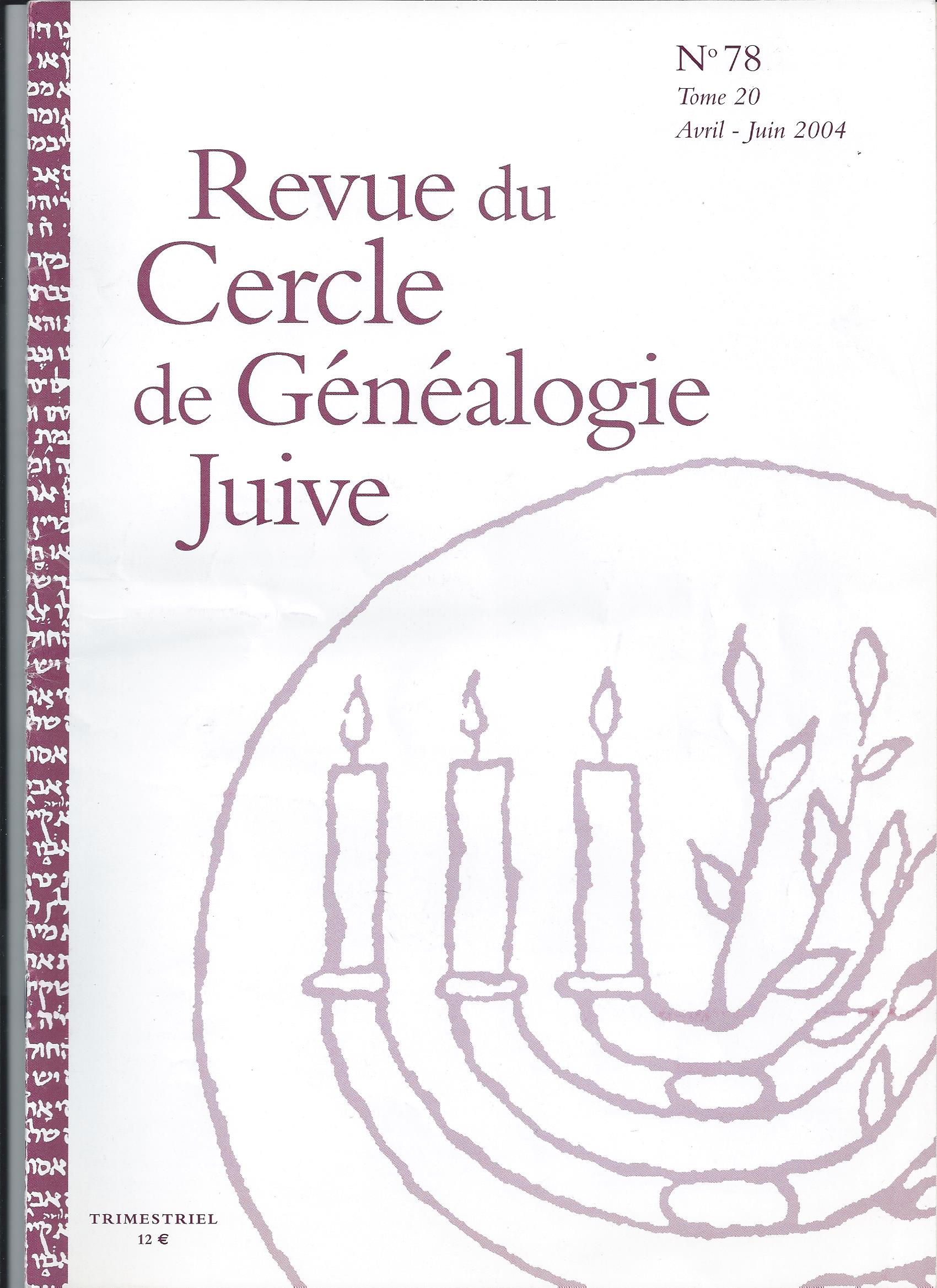OUR SOCIETY'S LIFE _______________________________________________________ Genealogical impacts of antisemitic persecutions during Nazi years 1. The death records of deportees who have not come back from the camps are the subject matter of French Law of May 15, 1985. This question, already touched in our Revue, Issue 75, is of special interest forJewish genealogists. The Law is summarized, as well as the errors which have occurred in its implementation. What is at stake is to obtain that the death records of these deportees be set up correctly and comprehensively. Eve Line BLUM and Jean-Pierre NETTER illustrate thiscase by their inquiries and by the answers given by the relevant section of the Ministry of Defense.2. In Jewish patriotism and genealogy under the Vichy rule , Philippe E.- Landau examins how the French Jews have reacted to the anti-Semitic laws deriving from the Status of the Jews promulgated in 1940 and 1941 :they produced the proof of their belonging to the French Nation alongits history, in particular by establishing their family trees. An inquiry made by the Consistoire Central illustrates how they have participated in the French political and military life during history.
The author stresses that this has not impacted the Vichy policy. 3. Jacqueline Behr and André Convers show documents established by their ancestors and acquaintances to prove how they early had been French citizens and how integrated they were in the society. 4.The racist obsession of the National-Socialists and its impact on German-Jewish genealogical research by Ernest Kallmann
The racist obsession of the Nazis, which made genealogy a national and institutional activity, involved over ten million Germans during the Third Reich. This article, published simultaneously in English by Stammbaum, The Journal of German-Jewish Genealogical Research, is comprised of three parts.
Part One sketches the rise of racism in Germany from the end of the 19th century, showing its influence on genealogy, eugenic theories based on a biased use of genetics, and Teutonic myths. Part Two describes how genealogy had become an institutional tool of Nazi politics, spreading widely among the German population.
Part Three, to be published in a subsequent issue, shows the fallouts of the Nazi racist obsession on today’s German-Jewish genealogy research.
_______________________________________________________ BOOK REVIEW Joseph Valynseele et Henri-Claude Mars, Le Sang des Rothschild, Paris 2004.
Anthony Allfrey. The Goldschmidts, Londres 2004.
David Kaufmann & Max Freudenthal. The Gomperz family. Londres 2003. _______________________________________________________ QUESTIONS AND ANSWERS |

